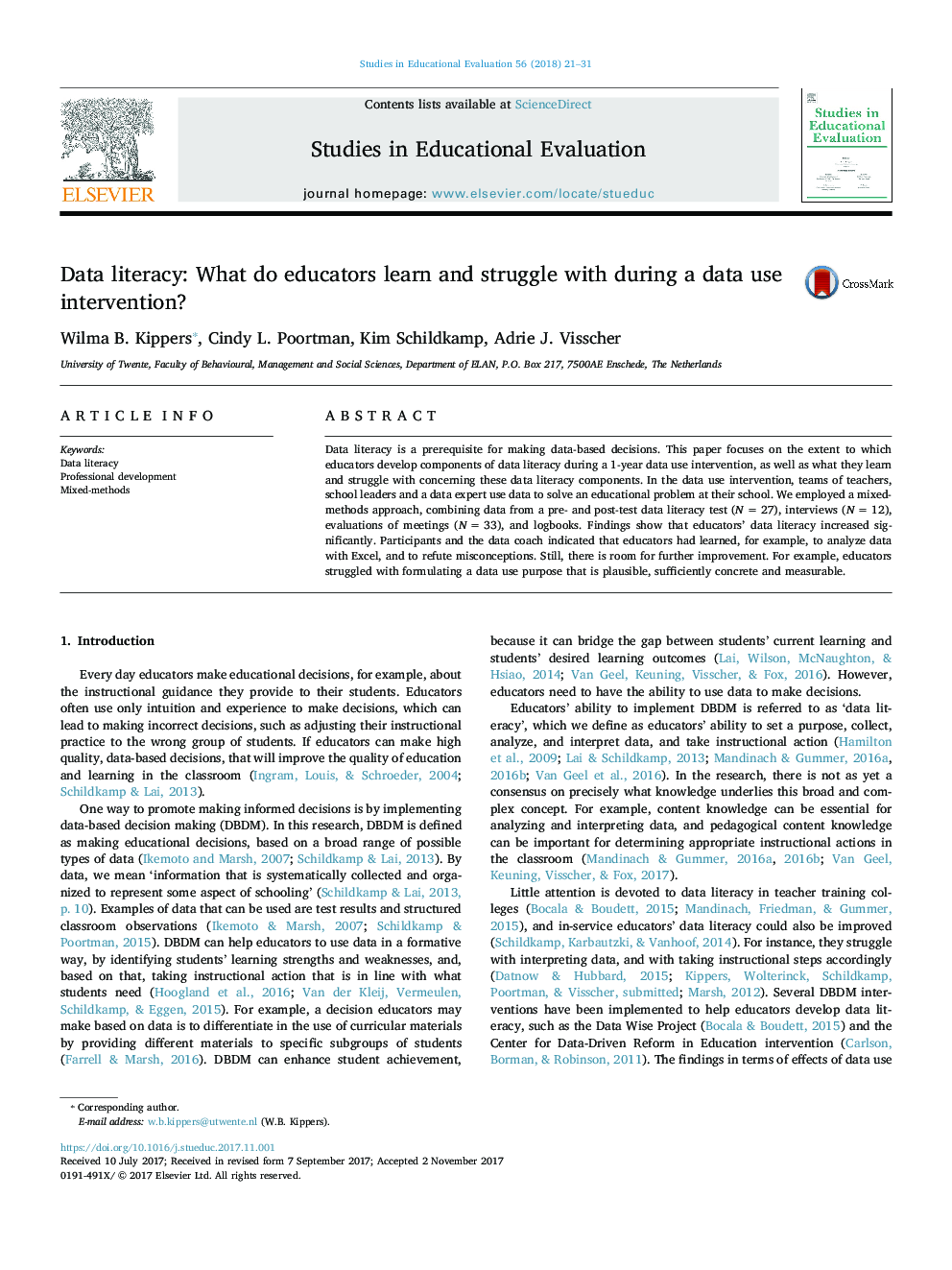| Article ID | Journal | Published Year | Pages | File Type |
|---|---|---|---|---|
| 6849054 | Studies in Educational Evaluation | 2018 | 11 Pages |
Abstract
Data literacy is a prerequisite for making data-based decisions. This paper focuses on the extent to which educators develop components of data literacy during a 1-year data use intervention, as well as what they learn and struggle with concerning these data literacy components. In the data use intervention, teams of teachers, school leaders and a data expert use data to solve an educational problem at their school. We employed a mixed- methods approach, combining data from a pre- and post-test data literacy test (NÂ =Â 27), interviews (NÂ =Â 12), evaluations of meetings (NÂ =Â 33), and logbooks. Findings show that educators' data literacy increased significantly. Participants and the data coach indicated that educators had learned, for example, to analyze data with Excel, and to refute misconceptions. Still, there is room for further improvement. For example, educators struggled with formulating a data use purpose that is plausible, sufficiently concrete and measurable.
Related Topics
Social Sciences and Humanities
Social Sciences
Education
Authors
Wilma B. Kippers, Cindy L. Poortman, Kim Schildkamp, Adrie J. Visscher,
